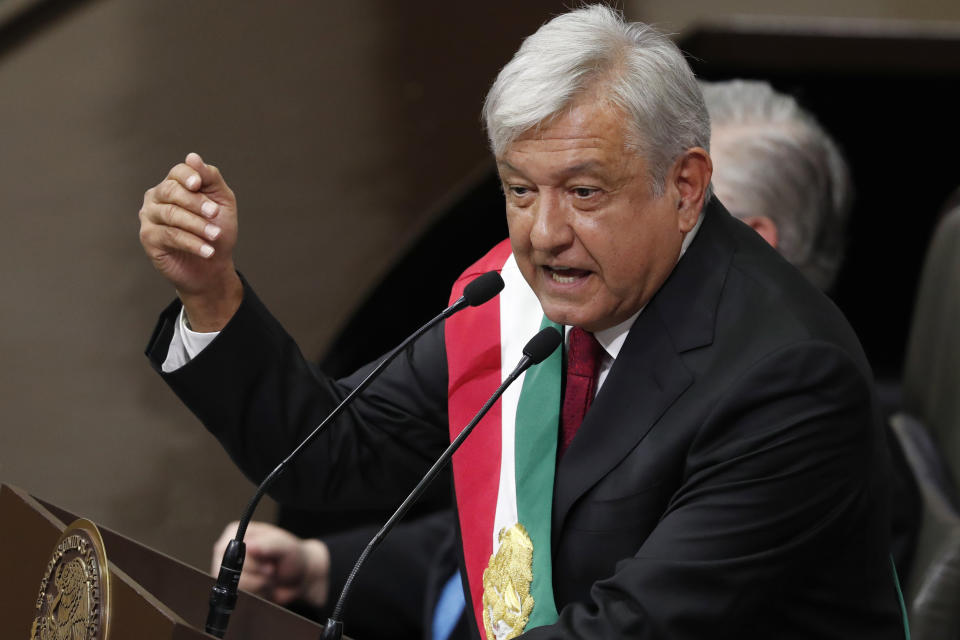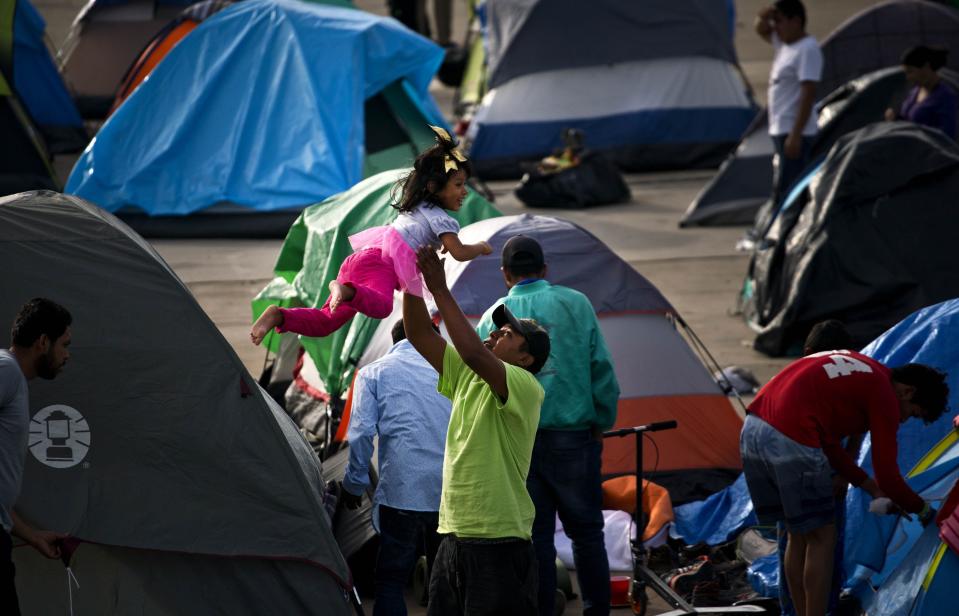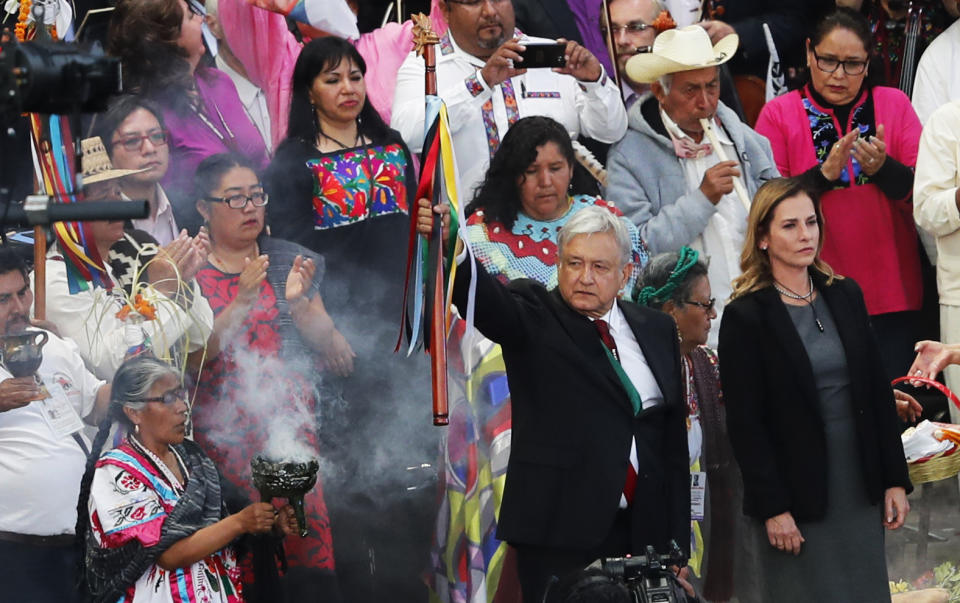The Latest: Mexico readies presidential jet for sale
MEXICO CITY (AP) — The latest on Mexico's new president (all times local):
6 p.m.
Mexico's presidential jet will depart for San Bernardino, California, on Monday to be reconditioned for sale as part of the austerity push by new President Andres Manuel Lopez Obrador.
The Boeing 787-8 Dreamliner with beds, shower and granite bathroom countertops was purchased for $368 million in November 2012, just before Enrique Pena Nieto took office as president for a six-year term that ended Saturday. The finished plane was delivered in February 2016.
New Finance Minister Carlos Urzua said Sunday that Mexico will also sell 60 smaller planes and 70 helicopters now in use by the federal government.
Lopez Obrador says he will fly coach in commercial planes.
___
3:55 p.m.
Mexican Foreign Minister Marcelo Ebrard says via Twitter that he has arrived in Washington to meet with Secretary of State Mike Pompeo.
Migration is top on the mind of the administration of new Mexican President Andres Manuel Lopez Obrador, who took office Saturday.
Thousands of Central American migrants hoping to apply for asylum in the U.S. have filled shelters in border towns like Tijuana and Mexicali. Addressing this buildup is a top priority of the new Mexican administration.
Ebrard reiterates in his Sunday tweet that Mexico seeks a relationship with the U.S. based on "mutual respect" and to identify common goals.
__
11:45 a.m.
Mexican President Andres Manuel Lopez Obrador is using his first full day in office to double down on promises to deploy the military for public security, tackling a key concern: stemming rampant violence and rising murders.
The plan requires a constitutional reform that would allow the marines and Army to form a National Guard to police much of the country. Lopez Obrador spoke before rows of generals at a sun-drenched military installation on Sunday and said the retooling of the military is "indispensable."
Deep-rooted corruption and ineffectiveness among police forces has led Mexico to rely heavily for years on the military to combat drug cartels in parts of the country.
But military commanders have long expressed uneasiness about this open-ended policing mission, and the armed forces have been implicated in multiple human rights abuses.



